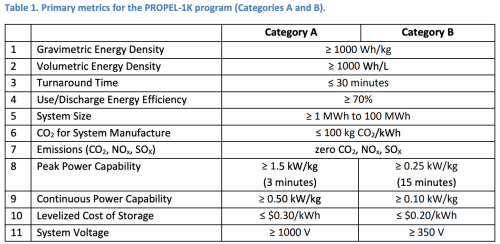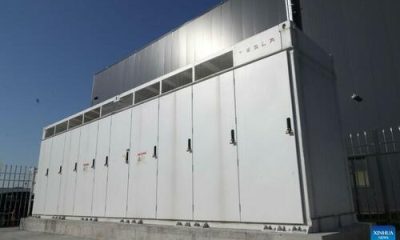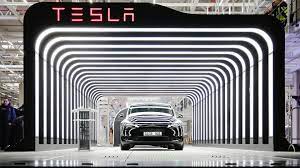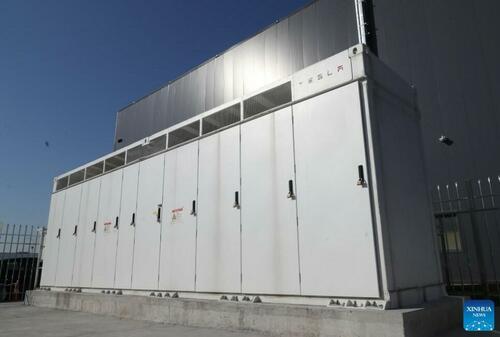Energy & Critical Metals
ARPA-E to award $30M for next-gen storage to electrify aviation, rail and shipping: PROPEL-1K
The US Department of Energy (DOE) announced up to $30 million in funding (DE-FOA-0003162) to develop next-generation, high-energy storage solutions to…

The US Department of Energy (DOE) announced up to $30 million in funding (DE-FOA-0003162) to develop next-generation, high-energy storage solutions to help accelerate the electrification of the aviation, railroad, and maritime transportation sectors.
Transportation is responsible for approximately 29% of total greenhouse gas (GHG) emissions annually in the United States. Light duty vehicles—passenger and small commercial vehicles—account for 58% of transportation GHG emissions, and battery-powered electric vehicles have emerged as a lower-emissions solution for many applications.
The majority of the remaining 42% of transportation GHG emissions is attributed to long-distance trucking (23%), aviation (8%), railroads (2%), and maritime (3%). Batteries and fuel cells represent potential solutions. However, for heavy-duty vehicles, vessels and aircraft, the maximum achievable energy density for both existing and anticipated next-generation electrochemical energy storage technologies is currently too low.
The Pioneering Railroad, Oceanic and Plane ELectrification (PROPEL-1K) program—managed by the Advanced Research Projects Agency-Energy (ARPA-E)—aims to support the research and development of alternative
approaches to energy storage to ultimately achieve a >4x improvement compared to existing state-of-the-art (SoA) options.
The technical scope encompasses electrochemical and/or chemical solutions that do not require hydrocarbon-based fuels (fossil or synthetic). The targets
for these energy storage system (ESS) solutions are 1000 Watt-hour per kilogram (Wh/kg) and 1000 Watt-hour per liter (Wh/L) (so-called “1K” technologies) at the end of life (EOL) and at the net ESS level.
Of particular interest are technologies that are not mere extensions of current mainstream electrochemical device thinking or short-term technology road maps. The primary program objective is to develop exceptionally high-energy storage solutions, capable of catalyzing broad electrification of the aviation, railroad, and maritime transportation sectors.
The program aims to catalyze broad electrification of the following sectors:
-
Aviation: Enable regional flight up to 1000 miles on aircraft transporting up to 100 people.
-
Railroads: Electrify all North American railroads and enable cross-country travel in the US with fewer stops and reduced infrastructure required for charging/refueling.
-
Maritime: Enable the electrification of all vessels that operate exclusively in US territorial waters.
-
Trucks: Strategies and roadmaps to electrify this sector have been identified, however, PROPEL-1K would enable longer range and higher freight loads.
The PROPEL-1K program structure acknowledges that different vehicles and vessels have distinct power requirements and cost base. Therefore, this program is divided into two discrete development tracks (Categories A and B) that are primarily differentiated by peak power capability, continuous power capability, required system voltage, and levelized cost of storage (LCOS) targets:
-
Category A targets a greater peak power and continuous power capability with higher LCOS category for “all-electric” aircraft; and
-
Category B targets a lower peak power and
continuous power capability with reduced LCOS category for railroads and ships.

Uranium Exploration Company Announces Additional Staking in the Athabasca Basin
Source: Streetwise Reports 12/22/2023
Skyharbour Resources Ltd. announced an update from its Canada-based Falcon Project along with additional…
Tesla Launches New Mega Factory Project In Shanghai, Designed To Manufacture 10,000 Megapacks Per Year
Tesla Launches New Mega Factory Project In Shanghai, Designed To Manufacture 10,000 Megapacks Per Year
Tesla has launched a new mega factory…
Giving thanks and taking stock after “a remarkable year”
An end-of-year thank you to our readers, industry colleagues and advertisers before Electric Autonomy breaks from publishing until Jan. 2
The post Giving…



















